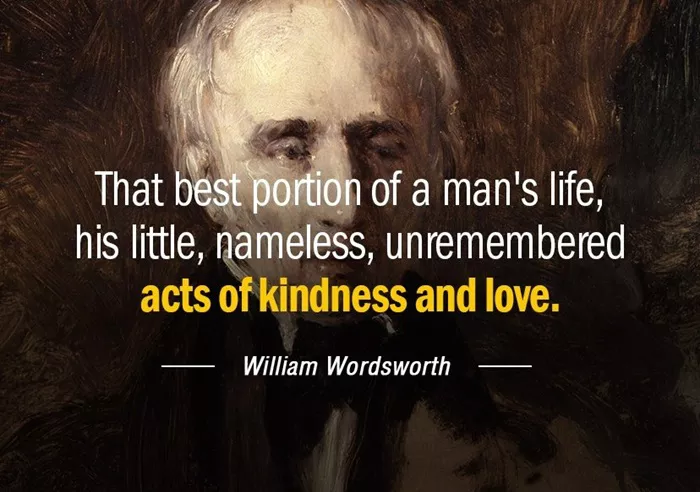Welcome to Poem of the Day – A Poet! He Hath Put His Heart to School by William Wordsworth
William Wordsworth is one of the most important poets of the Romantic era. He believed that poetry should express deep emotion and connect with nature. In his short poem A Poet! He Hath Put His Heart to School, Wordsworth explores what it means to be a true poet. This poem is only a few lines long, but it contains powerful ideas. It shows how real poetry comes from the heart and from honest feeling—not from skill or learning alone.
A Poet! He Hath Put His Heart to School Poem
A Poet! He hath put his heart to school,
Nor dares to trust the guidance of his heart,
Nor dare to think of God; the mighty debt
He owes to humankind, to Time and Nature,
Has he repaid?—Ah no, far otherwise!
He hath not lived, whose heart was never torn
As is the heart of man: nor felt the weight
Of the deep curse which is the gift of Genius!
A Poet! He Hath Put His Heart to School Explanation
Line-by-Line Explanation
“A Poet! He hath put his heart to school,”
Wordsworth begins by describing a poet who has chosen to train or “school” his heart. This poet does not allow himself to feel freely. He is holding back his emotions and trying to control them with learning and reason.
“Nor dares to trust the guidance of his heart,”
This poet does not listen to his own feelings. Instead of trusting his emotions to guide him, he relies too much on logic or rules. Wordsworth criticizes this approach. He believes that poetry should come from the heart.
“Nor dare to think of God; the mighty debt / He owes to humankind, to Time and Nature,”
The poet is also too afraid to think deeply about spiritual matters or the world around him. Wordsworth points out that every poet owes a “debt” to the world—to God, to humanity, to the passing of time, and to the natural world. Poetry, in his view, should speak to all these things.
“Has he repaid?—Ah no, far otherwise!”
Wordsworth answers his own question: has this poet repaid the debt he owes to life and the world? His answer is clear—no, not at all. The poet has failed in his duty.
“He hath not lived, whose heart was never torn / As is the heart of man:”
This is one of the most powerful lines in the poem. Wordsworth says that someone who has never felt pain or sorrow has not truly lived. A real poet must know suffering. He must understand the deep emotions that all people experience.
“nor felt the weight / Of the deep curse which is the gift of Genius!”
Here, Wordsworth finishes with a striking idea. He says that the gift of genius is also a curse. A true poet feels things more deeply than others. This emotional depth is painful, but it is also what allows the poet to create great art.
Main Themes of the Poem
1. Emotion Over Intellect
Wordsworth believed that poetry should come from deep feelings, not just from the mind. In this poem, he criticizes poets who are too focused on learning and not enough on emotion. A true poet listens to the heart.
2. The Poet’s Duty
Wordsworth reminds us that a poet has responsibilities. A poet must speak about God, nature, time, and the human experience. Poetry is not just about pretty words—it should connect with life and truth.
3. Suffering as a Source of Art
This poem suggests that pain is necessary for great art. A poet who has never suffered cannot fully understand human emotion. The “curse” of genius is to feel deeply, but that is also what allows a poet to write with power and meaning.
Wordsworth’s Romantic Vision
This poem reflects many of the ideas found in Romantic poetry. The Romantic poets valued emotion, nature, and individual experience. They believed that poetry should be personal and passionate. Wordsworth was a leader of this movement. In A Poet! He Hath Put His Heart to School, he expresses the belief that poetry should come from the soul—not just the mind.
Conclusion
William Wordsworth’s poem is a powerful reminder of what it means to be a real poet. A true poet must be honest, emotional, and deeply connected to the world. He must be willing to suffer in order to understand others. In just a few lines, Wordsworth gives us a complete picture of the poet’s role. This short poem still speaks to us today because it reminds us that art is not just about talent—it is about truth, feeling, and the courage to listen to the heart.

